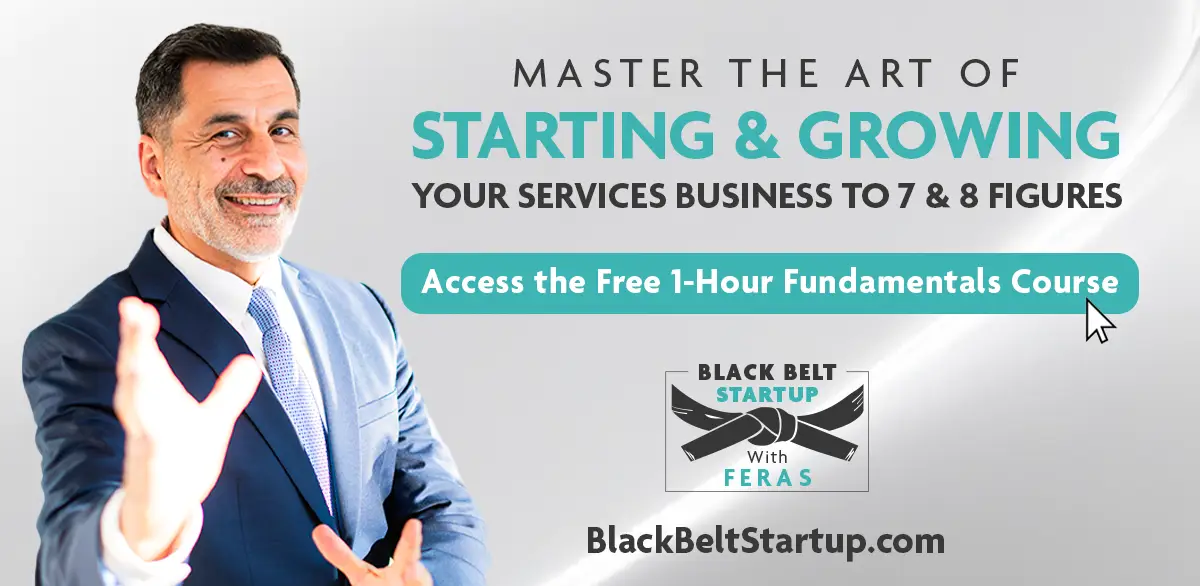Why Is It Beneficial to Attend Networking Events?

“Sometimes, idealistic people are put off the whole business of networking as something tainted by flattery and the pursuit of selfish advantage. But virtue in obscurity is rewarded only in Heaven. To succeed in this world you have to be known to people.”
– Sonia Sotomayor, U.S. Supreme Court Justice
I get this question a lot when advising new business owners.
My answer is always “for so many reasons” without exception. Attending events is one of the best ways to stay current on trends and especially to network and grow your business.
I understand the hesitation. Startup founders often have a lot going on and are pretty cash-strapped. I’ve been there myself.
In this article, I will discuss the benefits of attending networking events (especially in-person ones), the 7 critical types of people you can meet, and how to make the best use of your time there. I will also explain the key actions you need to take before, during, and after every event to make the most of it.
Not a big reader? Watch my video about this topic!
Why Attending Events Is Important
TechCrunch recently surveyed 52 founders about whether events are a good use of their time. More than half either were undecided about the usefulness of events or planned to attend fewer events.
Granted, the article surveyed tech founders, and the sample size is quite small, but the findings highlight how many founders feel about events. If you agree with that sentiment, you’re missing out. With careful planning and strategizing, events can literally be the absolute best use of your professional time.
In my first venture, a website design agency, my partner and I were scrambling to get leads and keep the business open. We found out about a big conference in Chicago but we were based on the east coast. What’s worse, we couldn’t afford the full conference ticket, airfare, AND hotel.
We developed a risky strategy: to purchase the exhibit hall passes as opposed to the whole conference because it was cheaper. Then we booked the cheapest red-eye flight and planned to attend the conference for one day only. Our plan was to fly in, spend all day in the exhibit hall then fly back in the evening, all while towing around our bulky laptops on wheeled cases (hey, it was over 20 years ago). Point is, that’s what we could afford.
And it paid off. We made several key connections which sparked introductions and gave our business a significant and immediate boost.
Beginner founders sometimes only see the commitment of time and money for attending events, but attendance doesn’t need to be a burden. While some events may require longer travel and overnight stays, plenty of other connection opportunities take place locally and regionally throughout the year.
If you’re wondering which events to attend as a startup, here are a few examples:
- Trade shows
- Industry conferences
- Local Chamber of Commerce meetings
- Local Meetup.com and Eventbrite.com events
The 7 Types of People You Want to Meet (Who Can Change Your Business World)
Your business goal for any event should be to connect with as many as 7 types of people.
But first, let me explain what I think networking is about. I know it’s tempting to enter a networking event and go into sales mode, pitching your spiel to everyone who stands still for a few seconds but this is the wrong approach. Networking is about fostering new relationships. Relationships that can be key to your new business’ growth. In other words, your goal isn’t necessarily to always sell on the spot but rather to create and nurture relationships. With that in mind, here are the 7 types of relationships you can build at networking events:
- Potential employees
Even if your first hire is months away, connecting with exceptional people can grow your list of potential future candidates. Anyone who invests in a conference takes their career seriously, and each person you meet knows dozens more. According to LinkedIn, 73% of jobs are filled through networking. - Products and technology providers
Meeting people at conferences is a great way to learn about new technologies and products that you can potentially build a service offering around. Many tech providers don’t offer their own professional services (implementation, training, support) for their products and rely on a network of certified partners to whom they send leads in need of such services. Networking with these providers gives you an opportunity to explore the lucrative possibility of becoming a certified partner. - Other founders in the same stage
You are never alone. No matter what problem, situation, or new idea you’re struggling with, someone else has had a similar experience. Through networking with other entrepreneurs at the same stage as you, you can share invaluable practical advice and learn how they’re overcoming comparable challenges.Who knows, you may meet a few like-minded people who become long-term friends and referral partners. These types of professional relationships are great for several reasons: keeping each other accountable for business goals, bouncing new ideas off them, and forming long-lasting bonds. As founders, we often find it hard to meet people who can relate to our world, but networking events offer a chance to meet those who do. - Lead partners
Businesses or consumers usually purchase more than one service. The person who needs a CPA probably needs insurance, landscaping, physical therapy, etc. Some of the other business owners you meet will be in adjacent markets and target the same audience. Together you can exchange leads, such as a financial advisor connecting with a tax specialist and both feeding leads to one another. - Investors
Investors frequent conferences looking for businesses and founders to support. Even if you’re not yet seeking investors, establishing a relationship early is always beneficial. As the saying goes, dig the well before you’re thirsty. - Competitors
Competitors are not necessarily your enemy. Some may target larger or smaller clients than you do and you could engage in a referral program. At the very least, most will share their experiences. You never know who you will meet, who you can learn from, or maybe even collaborate with. - Leads
Yes, you might meet people who needed your services yesterday and are eager to hear more about your business. One or two new clients can make any conference more than pay for itself. But again, be open to many connections. Don’t assume a need for your service is the only criterion for who to talk to.So if you’re wondering, “Which networking events should I attend?”, prioritize those that are within your budget and at which you’re most likely to connect with the types of people mentioned above. These will be the most beneficial for your business.
How to Prepare for a Networking Event
There are countless opportunities for connecting and learning at in-person events, but you need to approach these events as a business activity. As with anything you do, evaluate each event’s cost-benefit.
Before the Event
Before attending any event, set goals for how many people you intend to speak with, and be sure to have speaking points, elevator pitches, and longer pitches ready. But don’t focus solely on quantity. Meeting a hundred new people is great, but if you are rushing, you may not make a good impression. Try to balance quality with quantity. It’s better to have 12 meaningful conversations than 50 quick business card exchanges.
While not always possible, if you are able to, find out what companies or individuals will be in attendance. Doing some quick research on the people and companies and their verticals beforehand can help you make the best use of your time. You can predetermine your must-meet people and prepare for better conversations.
What to Do During the Networking Event
As you attend, assess if you’re making good connections. Who are you meeting? Which of the 7 categories are they in? For instance, if you regularly attend a weekly networking breakfast, but it’s not tangibly helping your business, focus your energy elsewhere.
Focus on the other person. If you want to get the most out of these events, remember that the most important communication skill in business and in sales is listening, so keep it as a dialogue and avoid monologues. Ask leading questions, and then keep your attention on what they are saying now, not what you will say next.
Yes, promote your business by letting people know what you’re doing and how you serve others, but also aim to be helpful and maybe provide a specific tip they can benefit from right away. Someone who gives is more memorable than one who takes only.
Doing this shows the value you can provide and will keep you top of mind.
Pro tip: As you collect cards or contacts (scannable QR codes are all the rage), jot a few quick notes about each person you meet. The old school way: write it on the back of their business card. But if you don’t have room on the card (or even a card), capture something in your phone’s notes app or record a quick memo. The latter will look like you’re just taking a quick call between conversations.
After the Networking Event
Make it a habit to enter your new contacts into your CRM system as soon as possible (if you don’t have a CRM, a basic Google sheet will do). Then, and this is an absolute MUST, follow up! Reach out to continue the conversation, send them information you think will be useful, or make a worthwhile introduction to someone you know. Do this within a few days and not two months later.
Key Takeaways
- Attending events is a must-do for beginner founders.
- Types of Events for Networking:
- Trade shows
- Industry conferences
- Local Chamber of Commerce or other meetings
- Meetup.com
- Eventbrite.com
- The 7 Types of People You Can Meet:
- Potential employees
- Products and technology providers
- Other business owners in the same stage
- Lead partners
- Investors
- Competitors
- Sales leads
Your Action Items:
- Identify three in-person events to attend in the next three months. (That’s one event a month).
- Start with local, inexpensive events so you get to practice before you invest in events you have to pay a lot for or travel to.
- For each event, set a target for the types and numbers of connections that you aim to make.
- Follow up! Enter all the contact information you’ve gathered, whether a lead or a partner, into your CRM and follow up promptly and not 2 months later.




